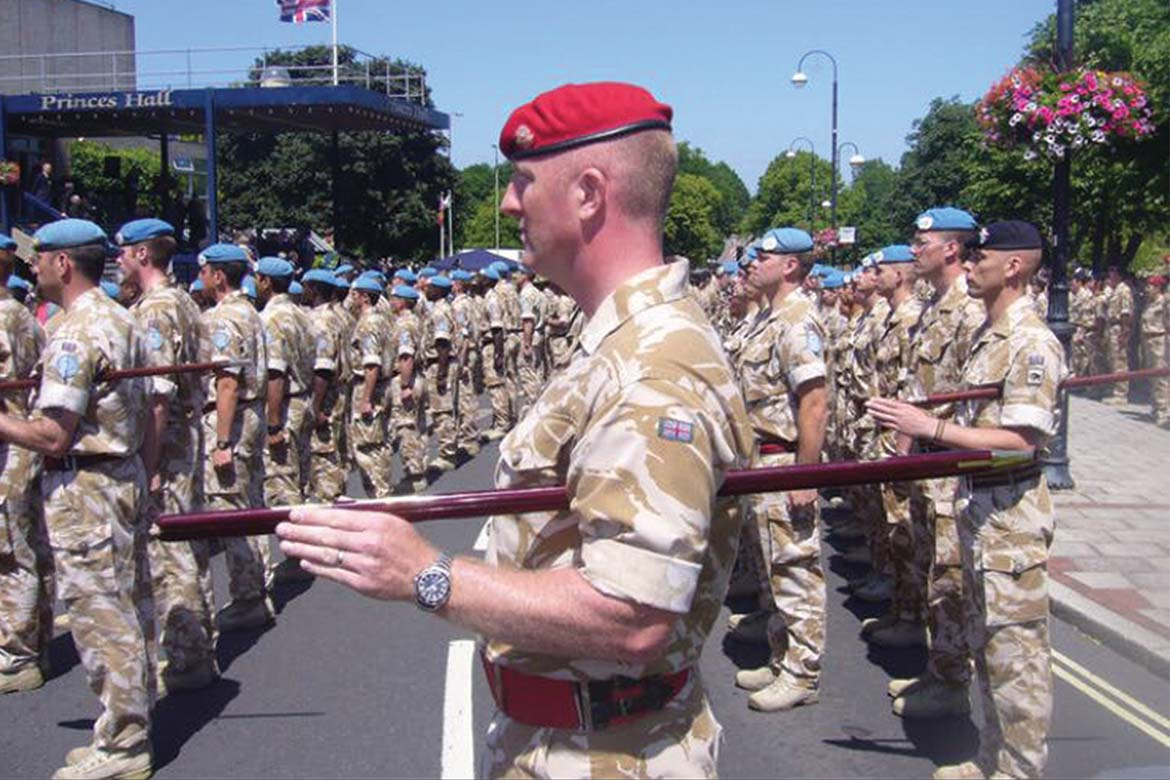The transition to civvy street
Rick Mounfield, CEO of the Security Institute, puts forward a plan for the pathway from army to civilian life and shares some hard-won advice for those about to embark on it.
On 11 November 2011, I received my last day’s pay after 22 years of service with the Royal Military Police. I was retiring as a Regimental Sergeant Major based in the south of England, though neither my wife nor I were from this region.
Once you decide to leave the forces family, you become very aware of all the benefits you are going to miss. Free medical, dental, gym membership even. You begin to think about where you might fit in a world that is not alien to you but certainly unfamiliar. The future workplace is an unknown and therefore daunting prospect.
I embarked on my career transition pathway, guided to the letter by a programme designed to ensure I received all the appropriate briefings, allowances and workshops that would set the foundation for my future. I feel, however, that I should have started to prepare much earlier than twelve months ahead. I was right, and if I could have gone back in time, this is what I would have done.
Four years from D Day – start getting qualified
At least four years from transition, I should have embarked on that MSc that I looked at, but decided that I did not have the time to undertake. Instead, I did it once I had left (when I was learning a new job and without the financial security I had in the Army).
Note 1. Whatever the level of academic achievement, use your enhanced learning credits and start to gather qualifications that civilian employers can quantify. Courses that augment your vocational skills and experience.
Three years from D Day – research where you want to live
Think about where you want to live. Many have settled where they grew up and found it very difficult to find a job that suits them and satisfies them. We often leave the Army due to separation from family. If you settle far from relevant jobs, you will end up living away from home through the week. We move around in the forces and we become adept at settling down and making friends wherever we go. Think hard about the priorities. Is it more important to live near family or where there is a good source of jobs with decent income? Secure your mortgage while you still have your forces income and before you sign off. You cannot get a mortgage if you are not working.
The remaining two years until D Day – network, network, network
I was once told that people buy people. Employers will select employees that they feel they can trust and that they like. A recommendation from a trusted source who knows you and the employer goes a very long way and this is the strength of the network. Start by connecting with friends that have left before you. Go to events and meetings where you can be introduced by your network to their network and swell your connections as a result.
Use your £175 Standard Learning Credit (SLC). This little-known allowance that every serviceman gets each year can be spent on a course or towards a learning event: a conference or workshop in your field. If your field will be security, you can spend your SLC on a professional membership. The Security Institute membership is applicable because we are a professional membership organisation. Annual fees with the Institute range from £120 to £170, so all levels are within range.
The Security Institute has Security Management courses at BTEC Level 3 certificate, Level 5 diploma and IQ Level 7 advanced diploma – an academic level for any ability. Our network is 2,600+ members, all of whom look out for each other. We have a job board, professional development platform and a mentoring scheme that are all provided at no extra cost for the sole aim of facilitating professional development and peer-to-peer networking. Once you leave your rank behind, our post nominals will let prospective employers know that you have been screened, peer- reviewed against your academic and vocational qualifications and most of all, it says that you have signed up to continuously professionally develop. You are not the one who will sit back on their past accolades.
In Summary
Don’t try and transition on your own. Seek help from those that have left before you. Every one of us has felt the anxiety and uncertainty of transitioning to civilian life. Prove to others that you are willing to be peer-reviewed and be proud of what you have achieved, without being arrogant about it. Whatever you are thinking of doing, start earlier than you think you need to. The years pass quickly, and you will have better results if your academic qualifications and network are established before your last pay day. The security industry is full of opportunity: don’t sell yourself short. Make yourself aware of opportunities in the periphery of your current skillset. Good luck!
Rick Mounfield
Chief Executive, Security Institute

